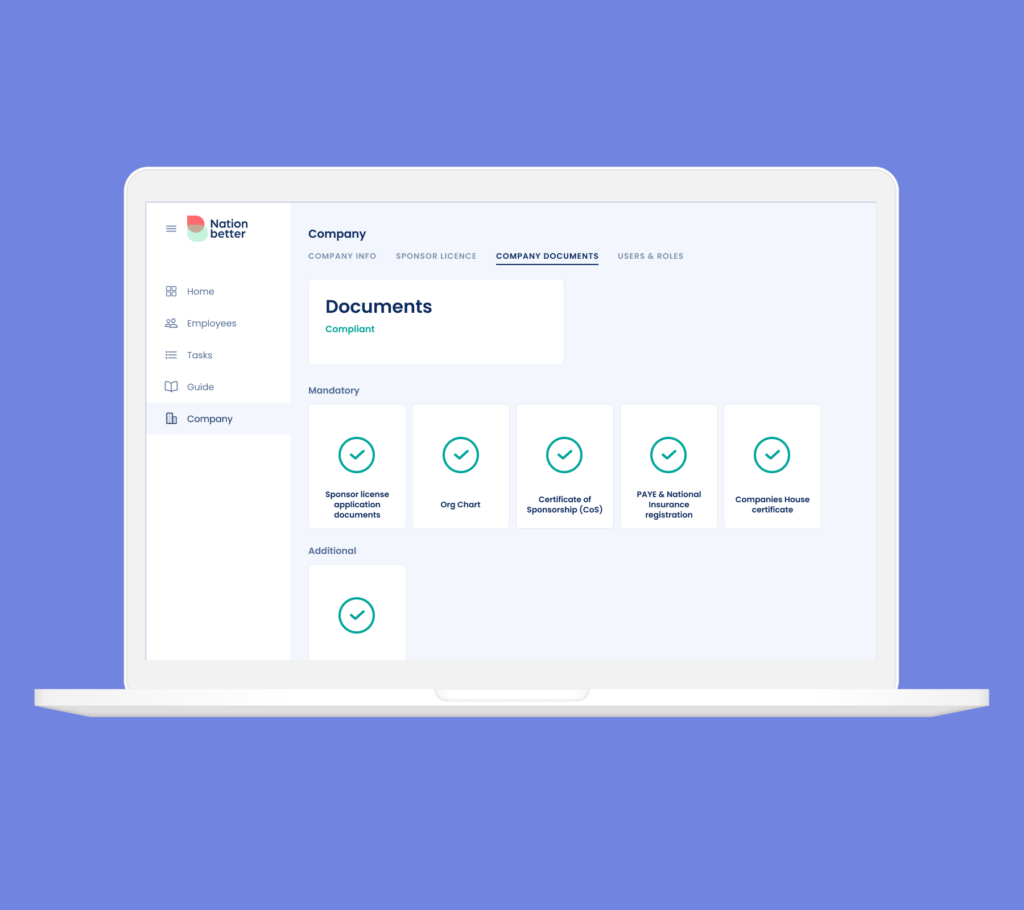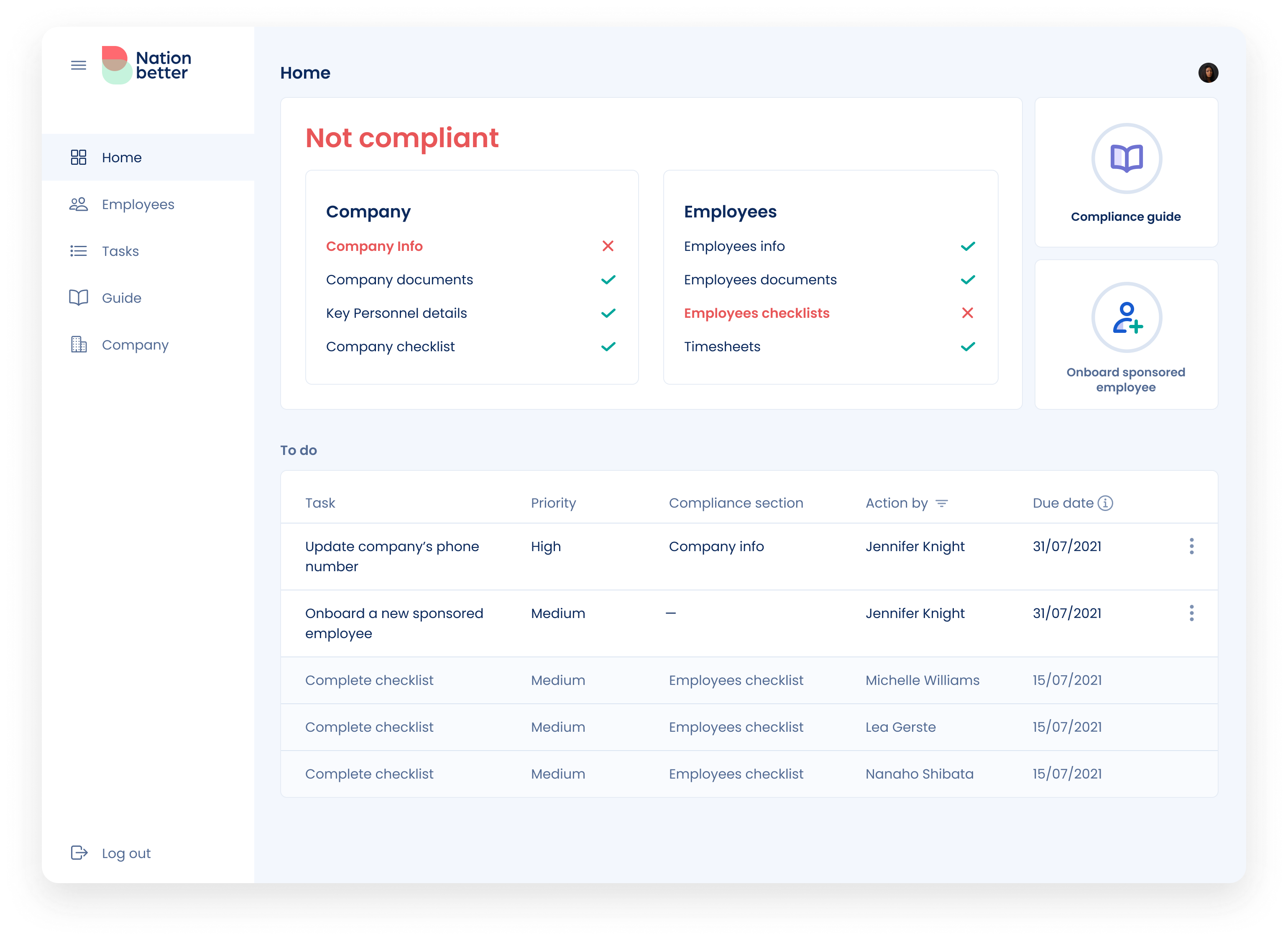Why you should become a sponsor and how to become one

Why you should become a sponsor and how to become one
Due to a combination of factors such as Brexit, COVID-19, and the increasing demand for workers, the UK labour market is experiencing an unprecedented labour shortage.
This is evident by the fact that there were almost 1.29 million vacancies available during the first quarter of 2022 despite the unemployment level being the lowest it’s ever been in over 50 years.
Given this precarious situation, it’s no surprise that many employers are looking for alternative ways to fulfil their skills shortages and gain an advantage over their competitors.
But, how do you overcome these challenges and ensure that your business is served by the best people? Looking beyond the boundaries of the UK might be the best way to go about it.
That said, despite the Government’s best efforts to simplify the process of sponsoring—hiring international workers to work in the UK—it remains a challenging and daunting task for many employers.
So here’s what you should know about the benefits of sponsoring, the challenges you may face when looking to sponsor talent, and how you can overcome them.
The benefits of sponsoring workers
It’s important to acknowledge that regardless of whether you’re a small business or a larger corporation, the benefits of sponsoring workers are many and profound.
The obvious benefit is that you can overcome the crippling labour shortage that’s plaguing the country. By expanding your search for qualified workers beyond the boundaries of the UK, you’re essentially exposing yourself to a larger pool of talent so that you can find the best fit for your company.
In addition, sponsoring allows you to hire the best talent from around the world, giving you an edge over your competitors. But it doesn’t end there. Sponsoring can also help you build a diverse workforce, which studies show can boost productivity, enhance innovation, and improve profitability.
The challenges you may face when sponsoring talent
While employee sponsorship can be incredibly helpful if you’re looking to overcome skills shortages in the UK, it’s also important to address why more employers are not embracing this opportunity.
The main reason is the process of sponsoring talent is fraught with complexities and sponsors may face numerous challenges in:
- Finding the right talent
- Choosing the right visa route for sponsorship
- Understanding the sponsorship process
- Ensuring the job is eligible for sponsorship
- Presenting the right supporting documents when applying for a sponsor licence
The benefits of sponsorship, however, far outweigh the challenges, and your organisation can greatly benefit by becoming a sponsor.
The steps to take to become a sponsor
The journey towards sponsorship starts with becoming a sponsor by registering yourself as a sponsor with the Home Office.
The application process involves several steps and you must ensure that you’re following each step and fulfilling the requirements for your sponsor licence application to be successful.
The steps include:
- Ensuring your organisation is eligible to become a sponsor
- Choosing the type of sponsorship licence
- Appointing key personnel
- Completing and submitting the online application
- Paying the licence fee
You may also need to wait up to 8 weeks to get your licence.
Once you secure your licence, you need to ensure that you have the systems and processes in place to fulfil your sponsor duties and manage your sponsorship activities.
Get detailed insights from immigration and legal experts
If you’re interested in becoming a sponsor, we’re conducting a free webinar on the 26th of July on how to secure and manage your sponsorship licence.
In our webinar, we cover everything mentioned above in detail, so you don’t want to miss this opportunity.
Just click here to save your seat.
In the meantime, if you’d like to receive expert support to secure your sponsor licence, feel free to get in touch with our team of experts.

Related articles

Blog post heading
Sed ut perspiciatis unde omnis iste natus error sit voluptatem accusantium dolor...

Blog post heading
Sed ut perspiciatis unde omnis iste natus error sit voluptatem accusantium dolor...

Blog post heading
Sed ut perspiciatis unde omnis iste natus error sit voluptatem accusantium dolor...
